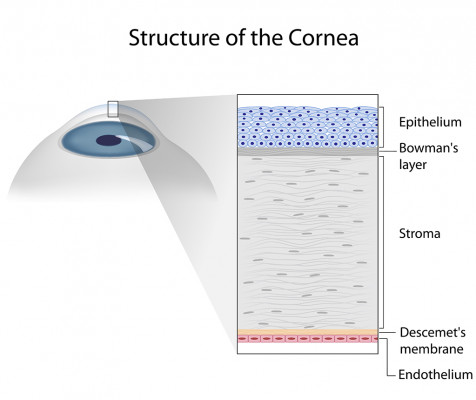Cornea / External Eye Diseases

An easy way to understand the function of the cornea is to think about the eye as a camera. The cornea would be the glass on the front of the lens.
The cornea is a clear "window" through which light passes into the eye. It provides most of the focusing power. Corneal injury, disease, or hereditary conditions can cause clouding, distortion, and scarring.
Corneal clouding, similar to frost on a window-pane or dirty smudges on a camera lens, block the clear passage of light into the retina, reducing sight sometimes even to the point of blindness. Corneal injury and disease can sometimes be intensely painful.
What can cause corneal injury?
Nearly any foreign object can injure the eye, especially the cornea, the most exposed part of the eye. Protection of the cornea is the reason emergency washing of the eye is absolutely necessary when the eye is exposed to toxic chemicals. Most corneal injuries are preventable with protective glasses and proper precautions when dealing with hazardous substances.
What causes corneal disease and degeneration?
Infections, whether bacterial, fungal, or viral are frequent causes of severe corneal damage and ulceration. Abnormal steepening of the cornea (keratoconus), degeneration occasionally following cataract surgery (corneal edema or swelling), and some aging processes can also affect the clarity and health of the cornea.
Some disorders of the cornea are inherited and can lead to clouding and loss of sight.
Learn about Treatments for Corneal Disorders
To schedule an appointment, call (509) 456-0107
In the news
September 11, 2025
Eye Injury Prevention
Protecting your eyes from injury is one of the simplest things you can do to keep your vision healthy throughout your life.
August 13, 2025
Wildfire Smoke & Your Eyes
There has been a lot of news about how to care for your lungs, but we wanted to share some easy-to-follow tips to care for your vision during thick wildfire smoke.
